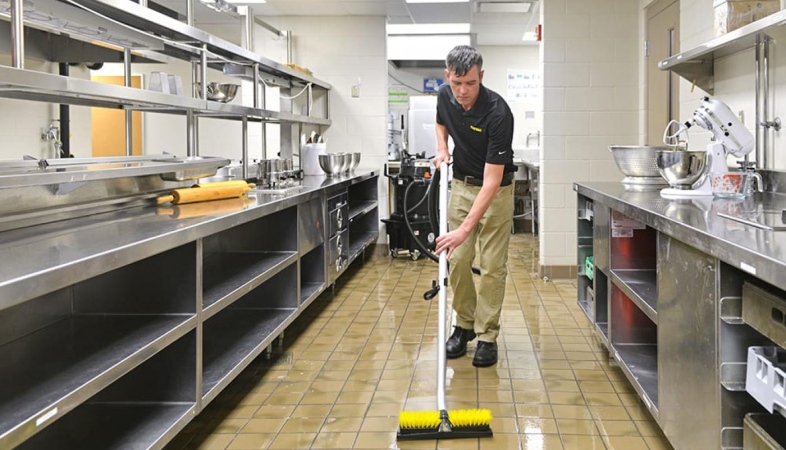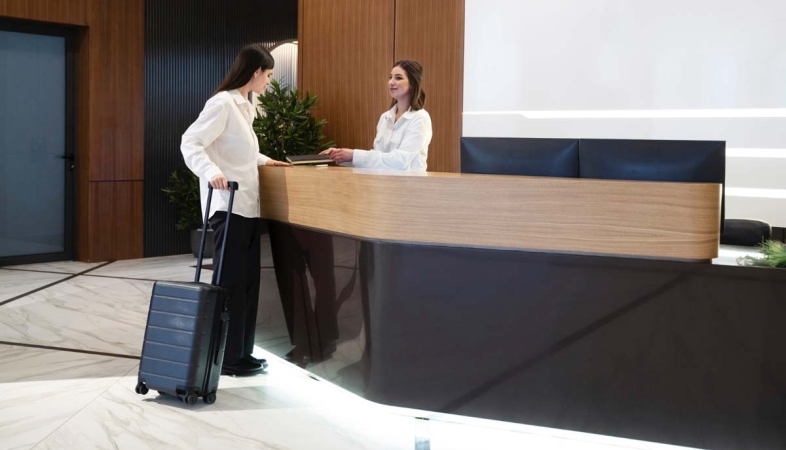The Psychology of Cleanliness: How Hotel Housekeeping Impacts Guest Perceptions
A clean and well-maintained environment not only meets guests' basic expectations but also contributes to their emotional and psychological well-being, creating memorable and positive experiences that drive repeat business and brand advocacy.

Hotel housekeeping plays a crucial role in shaping guest
perceptions and overall satisfaction during their stay. The cleanliness of
guest rooms and public areas significantly influences guests' experiences and
can impact their perception of the hotel brand. Understanding the psychology of
cleanliness is essential for hoteliers to effectively manage housekeeping
operations and meet guest expectations. Let's delve into how hotel housekeeping
impacts guest perceptions and the psychological factors at play:
1. First Impressions and Perception: Cleanliness is often one of the first aspects guests notice upon entering a hotel room or public space. The initial impression of cleanliness sets the tone for the entire stay and influences guests' perceptions of the hotel's overall quality and attention to detail. A clean and well-maintained environment creates a positive first impression, instilling confidence and trust in the hotel brand.
2. Sense of Comfort and Security: Cleanliness evokes feelings of comfort, safety, and security in guests, fostering a sense of well-being during their stay. A tidy and hygienic environment helps guests relax and feel at ease, enhancing their overall satisfaction and enjoyment of the hotel experience. Conversely, unkempt or dirty surroundings can evoke feelings of discomfort, anxiety, and dissatisfaction, negatively impacting the guest experience.
3. Perceived Value and Quality: Guests often associate cleanliness with value and quality, equating a clean and well-maintained environment with a higher level of service and professionalism. A hotel that prioritizes cleanliness conveys a commitment to guest satisfaction and attention to detail, enhancing its perceived value and reputation. Guests are more likely to perceive a hotel positively and be willing to pay a premium for accommodations that meet their cleanliness standards.
4. Trust and Reliability: Cleanliness builds trust and confidence in the hotel brand, signaling reliability and consistency in service delivery. Guests expect hotels to uphold high standards of cleanliness and hygiene to ensure their health and well-being. A clean and sanitary environment reassures guests that their needs and expectations are being met, fostering trust and loyalty towards the hotel brand.
5. Emotional Connection and Loyalty: Cleanliness can elicit emotional responses from guests, influencing their overall satisfaction and loyalty towards the hotel. A positive housekeeping experience, characterized by immaculate rooms, fresh linens, and attention to detail, creates a sense of appreciation and attachment among guests. Cleanliness becomes a memorable aspect of the guest experience, driving repeat business and positive word-of-mouth recommendations.
6. Perception of Control and Empowerment: For many guests, cleanliness represents a sense of control and empowerment over their environment. A clean and well-maintained hotel room allows guests to feel in control of their surroundings, contributing to a sense of autonomy and satisfaction with their stay. Conversely, a lack of cleanliness can diminish feelings of control and autonomy, leading to frustration and dissatisfaction.
7. Impact on Health and Well-being: Cleanliness is closely linked to health and well-being, particularly in the hospitality industry where hygiene standards are paramount. Guests expect hotels to maintain rigorous cleanliness protocols to protect their health and prevent the spread of germs and pathogens. A clean and sanitary environment reduces the risk of illness and contributes to guests' overall sense of well-being and peace of mind during their stay.
The psychology of cleanliness underscores the importance of hotel housekeeping in shaping guest perceptions and experiences. By prioritizing cleanliness and hygiene standards, hotels can enhance guest satisfaction, build trust and loyalty, and differentiate themselves in a competitive market. A clean and well-maintained environment not only meets guests' basic expectations but also contributes to their emotional and psychological well-being, creating memorable and positive experiences that drive repeat business and brand advocacy.
.png)














.jpg)













